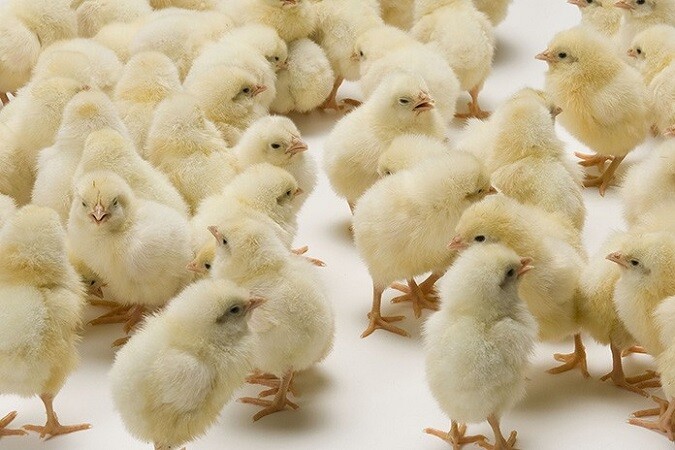

The consequences of drop in body temperature are quite dramatic. Although day-old chicks are able to deal with a relatively large range of body temperatures, as are all newborn animals, they will – if the correct body temperature is not restored quickly – experience difficulties.
The first reaction of the chick will be to start making noise, to attract the attention of mother hen and to tell her that it needs support. If, in our chicken houses, mother hen doesn’t respond and the temperature drops further, the bird will become under-cooled and start to lie down, which further accelerates the process of becoming under-cooled. An under-cooled bird will experience stress, which prevents its immune-system from functioning properly, leaving it more susceptible to e-coli or any other type of bacterial infection. In these circumstances, first week mortality will inevitably be increased.
By lying down, the chick will also not find feed and water, as in a normal process it “stumbles” into it when moving around. These “non-starters” will not digest any feed in that first hours/days, so they will also not obtain any heat from the digestion process. By not eating, the digestive tract is not stimulated, and the immune-system is not stimulated either. When the birds don’t eat, they don’t take up carbohydrates, and these carbohydrates are needed to absorb the yolk residue.
Without eating, the residual yolk will remain longer in the body cavity, increasing the risk of navel-yolk sac mortality. And in this yolk, mother hen stored her maternal anti-bodies. If the chick is unable to take up the yolk properly because it lacks the carbohydrate energy produced by eating, it will also have reduced access to the benefits of these maternal antibodies.
Last but not least, the consequences for the performance of the flock are significant. The problem is not so much increased mortality in the first week, which although regrettable, is a relatively inexpensive mortality. However the birds that were under-cooled but didn’t die are more of a concern. These birds will not start for a couple of days, and remain at hatch weight when the rest of the flock is already up to a body weight of 120-150g. Not only will this variance reduce the flock’s average bodyweight and FCR at seven days of age, but it will also undermine uniformity, both at seven days and at the end. This uniformity shows as uniformity of bodyweight, but can for instance also be expressed as uniformity of immune competency.
 Contact Jaguza Support
Contact Jaguza Support